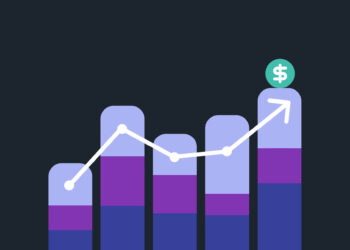Choosing the right market research tools is essential for businesses looking to stay ahead in 2025. Advanced analytics, AI-driven insights, and real-time data tracking help companies make informed decisions.
The best market research tools provide accurate consumer insights, competitor analysis, and trend forecasting. Whether you’re a startup or an established business, using these tools ensures a strategic edge in a competitive market.
1 Google Trends
What It Does:
Google Trends is a powerhouse for analyzing search behavior. Want to know if people are more interested in “budget vacation ideas” or “luxury travel” this year? Google Trends will show you.
Why It’s Great:
- Provides real-time data on what’s trending
- Helps you understand seasonality in searches
- Free and easy to use
Best For:
Beginners, small business owners, and anyone looking to brainstorm ideas or validate trends.
2 SurveyMonkey
What It Does:
This DIY survey platform helps you create custom surveys, distribute them to your audience, and analyze the results for actionable insights.
Why It’s Great:
- Intuitive drag-and-drop design for easy survey creation
- Offers templates for market research, customer feedback, and engagement
- Generous free plan, plus scalable paid options
Best For:
Individuals and small teams needing qualitative audience feedback without breaking the bank.
3 SEMrush
What It Does:
SEMrush delivers competitive intelligence. From SEO and PPC data to analyzing your competitors’ websites, it provides unparalleled insights. It’s like having a crystal ball for your market.
Why It’s Great:
- Helps track keywords for organic traffic
- Reveals competitors’ best-performing strategies
- Offers robust reporting tools perfect for presentations
Best For:
Content creators, digital marketers, and businesses focused on dominating the online space.
4 Statista
What It Does:
Statista aggregates statistical data on nearly any topic imaginable. Whether you’re looking for global coffee consumption patterns or the latest Gen Z spending habits, Statista has you covered.
Why It’s Great:
- Easy-to-digest charts
- Data sourced from credible global organizations
- Covers a wide range of industries
Best For:
Academics, students, and professionals looking for reliable, curated data.
5 BuzzSumo
What It Does:
BuzzSumo identifies the most shared content across social media, helping you understand what grabs attention in your industry.
Why It’s Great:
- Provides insights into the best-performing content types
- Tracks performance by topic, domain, or competitor
- Great for discovering influencers in specific niches
Best For:
Social media managers, bloggers, and content strategists aiming to create shareable posts.
6 ZoomInfo
What It Does:
ZoomInfo focuses on B2B insights, providing detailed contact and company info for effective outreach campaigns.
Why It’s Great:
- Offers detailed business intelligence
- Integrates easily with CRM tools like HubSpot and Salesforce
- Real-time updates ensure you’re using fresh data
Best For:
Sales teams, recruiters, and anyone in the B2B space.
7 Tableau Public
What It Does:
Tableau is a data visualization tool that transforms complex findings into stunning visuals. While the paid version is tailored for enterprise, Tableau Public remains a free and beginner-friendly option.
Why It’s Great:
- Visually appealing dashboard customization
- Free public version for basic usage
- Helps make numbers relatable with engaging infographics
Best For:
Presenters, students, and strategists who want to make their findings stand out.
How to Choose the Right Tool
Not every tool will fit your needs, and that’s okay. Start by considering the following factors before committing to one:
1 Understand Your Objective
Are you tracking consumer trends, conducting competitor analysis, or gathering direct feedback? Your answer will guide you to the most effective tool. For example, Google Trends is great for understanding behaviors, while SurveyMonkey is tailored for collecting opinions.
2 Budget Constraints
Many tools offer free versions (perfect for beginners). Explore these first before deciding if the premium features can justify the cost.
3 Ease of Use
Some tools are intuitive, while others may require hours of onboarding. If you’re short on time or aren’t tech-savvy, platforms like SurveyMonkey or Google Trends offer simplicity.
Beyond the Tools – The Human Element
While tools are incredible for automating information collection, don’t underestimate the importance of interpreting their output critically. Statistics and charts are valuable, but the real magic lies in understanding why data trends the way it does and how it applies to your goals.
And remember, tools are just that—tools. Success also requires creativity, empathy for your audience, and strategic thinking to leverage these platforms effectively.
Build Your Strategy for 2025
Market research tools are evolving faster than ever, and 2025 promises even more ground-breaking innovations that will give everyday Americans unparalleled access to the world of data. By integrating these instruments into your workflow, you’ll not only stay ahead but thrive in a highly competitive landscape.
Curious to see how some of these tools could directly impact your goals? Take a minute to explore one tool from this list today. You might be surprised by how accessible and empowering market research can actually be.




















